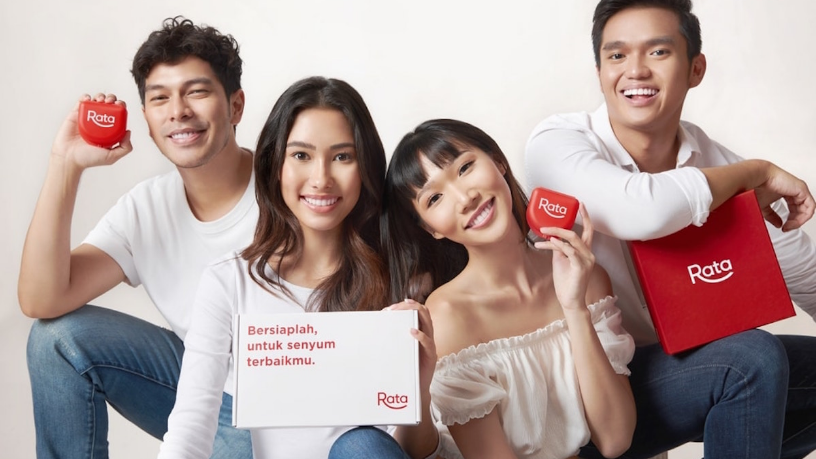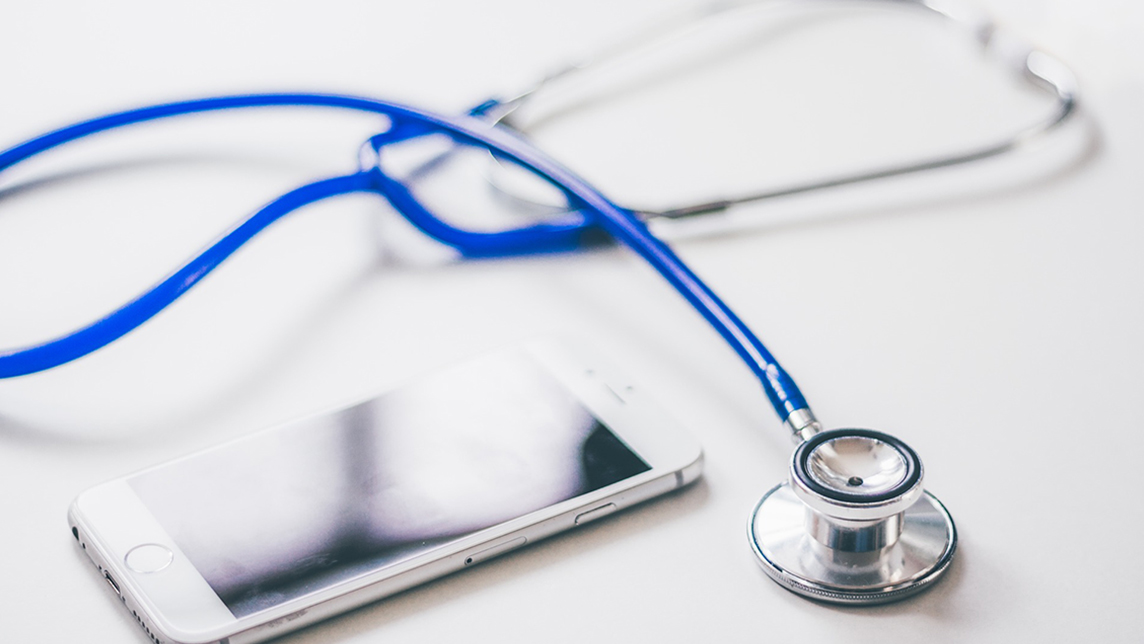Rata, a recent entrant to the burgeoning Indonesian beauty-healthtech sector, is the first in the country to offer AI-driven customized orthodontic aligners as a more affordable and effective solution over conventional dental braces and retainers.
Rata, which means “aligned” in the Indonesian language, was officially launched in May 2019 by two dentists, CEO Edward Makmur and CMO Deviana Maria Anastasia. The husband-and-wife co-founders set up the company with CSO Danny Limanto, a senior manager in corporate strategy at Gojek, and CFO Jason Wahono, a finance specialist with a background in venture capital and retail business.
Working with dentists, the company produces clear plastic aligners that are transparent and removable, and designed to suit each patient's set of teeth, ensuring they progress toward a healthy and ideal shape.
“Our AI technology has the ability to provide a simulation of the movements that the teeth will undergo – a preview of how the user's teeth will be moving – before the process begins," Anastasia said in an interview.
The company currently has less than 50 staff. It received an undisclosed amount of seed funding from Alpha JWC Ventures, which has backed more than 20 Indonesian startups. Most recently, the VC invested $8m in the popular grab-and-go coffee chain Kopi Kenangan.
Accelerated straightening
Anastasia said Rata's aligners sidestep the issues that put people off conventional means of dental rehabilitation, namely health problems caused by braces pricking the inside of the mouth, requiring regular dentist appointments that not every one can commit to and the discomfort of wearing braces or retainers in a social setting.
The company also produces simulations of the teeth alignment process, which the patient can review during dental checkups. “We have accumulated enough data for the software to identify what is the normal tooth position and how to move those tooth to the right place [..] but of course we still need the dentists to oversee the process,” she said.
Rata’s aligners, which the company produces locally, cost IDR 9.9m per package. The company says this works out to be cheaper than the total cost of getting braces or retainers that would include regular dental checkups and re-settings.
Each of Rata's package has 10 sets of aligners, with each set consisting of between 15 to 20 aligners, depending on the patient's needs. The aligners must be worn for 22 hours a day for seven consecutive days – essentially all day except when users are eating and brushing their teeth.
After seven days, patients must start on a new set of aligners. Each new aligner within a set gets progressively flatter by 0.25mm toward the ideal teeth alignment, resulting in an obvious shift in teeth position that can be felt by their users, Anastasia said.
Ideally, the straightening process is completed after using one package, which can take between three and six months. Straightening through conventional braces currently takes one to three years. If the customer’s teeth are not straightened after the package is finished, Rata has promised to provide more sets for free until the process is complete.
Market gap
As dentists, the founders of Rata spotted an obvious market for affordable, clear aligners in Indonesia.
“We saw a gap in affordable dental needs in Indonesia," said Anastasia. “Braces are expensive and [it's] such a hassle to undergo the treatment. That is why we decided to produce the most affordable clear aligners that are as efficient as braces in straightening teeth."
Customers need to go in-person for an initial check to determine their idea projected shape of teeth and the right shape of cast to achieve that shape.This can be done at Rata's headquarters in Jakarta and its eight partner dental clinics, and at public events – most commonly held in shopping centers – where Rata sets up pop-up stores to promote their products.
After the straightening program begins, Rata then provides online consultations that customers can easily access. The startup has also partnered with a number of dental clinics – mostly around Jakarta for now – to assist customers who prefer physical consultations over online ones.
Focusing on Indonesian market
Most Indonesians, Anastasia said, “are concerned about their dental beauty but do not bother to fix dental health issues, so we are eager to educate them on the importance of both.
“Right now, not a lot of people really care about their oral health… By making the [Rata] brand approachable and affordable, we believe that we will expand the Indonesian teeth cosmetic market."
For now, Rata has no plans to expand beyond Indonesia.
The founders are happy with the more than 5,000 customers they have acquired since their launch, which they see as a positive sign for 2020. Expansion plans include partnering more clinics, increasing publicity and the online business. The company continues to sell its aligner packages online and mail them to customers, which works especially well during the current Covid-19 home-isolation.
Anastasia said: “Personally, I have loved seeing our customers' smiles after they have completed using their Rata aligners package."











